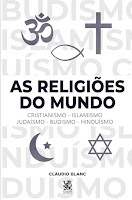RELIGIOUS ZEAL AND FUNDAMENTALISM
Fundamentalism is characterized by tremendous religious
zeal. "The impulse of most fundamentalist movements, whether Catholic,
Mormon, evangelical Christian, Muslim, or Jewish, is a strong desire to return
to mystical order and original perfection," wrote Jon Krakauer in his
brilliant book For the Flag of Paradise: A History of Faith and Violence.
Fundamentalists, therefore, follow their doctrine from a strictly literal
interpretation of the oldest and most sacred texts of their church. The authority
of these divinely inspired writings is absolute and immutable. And the duty of
virtuous men and women, fundamentalists believe, is to live their lives
according to a rigidly literal reading of this literature.
There is, however, an implication that derives directly
from this stance. According to what Vincent Crapanzano puts in his book Serving
the World - Literalism in America from the Pulpit to the Bench, the literalism
of fundamentalists "stimulates a closed view of the world, generally
(although not necessarily) conservative in political terms, in which History is
frozen in time and people are seen through an 'us and them' prism, in which
"we" possess truth, virtue and goodness, and "they" possess
falsehood, depravity and evil." Fundamentalism thus excludes the
perception advocated in Christianity that humanity is a fraternity and that one
should "love one's neighbor with oneself". By dividing communities
into those imbued with good or evil, this attitude undermines the Buddhist
search for compassion. Fundamentalism thus suffocates religiosity to the
detriment of an angry religion.
Book: The religions of the world




Nenhum comentário:
Postar um comentário